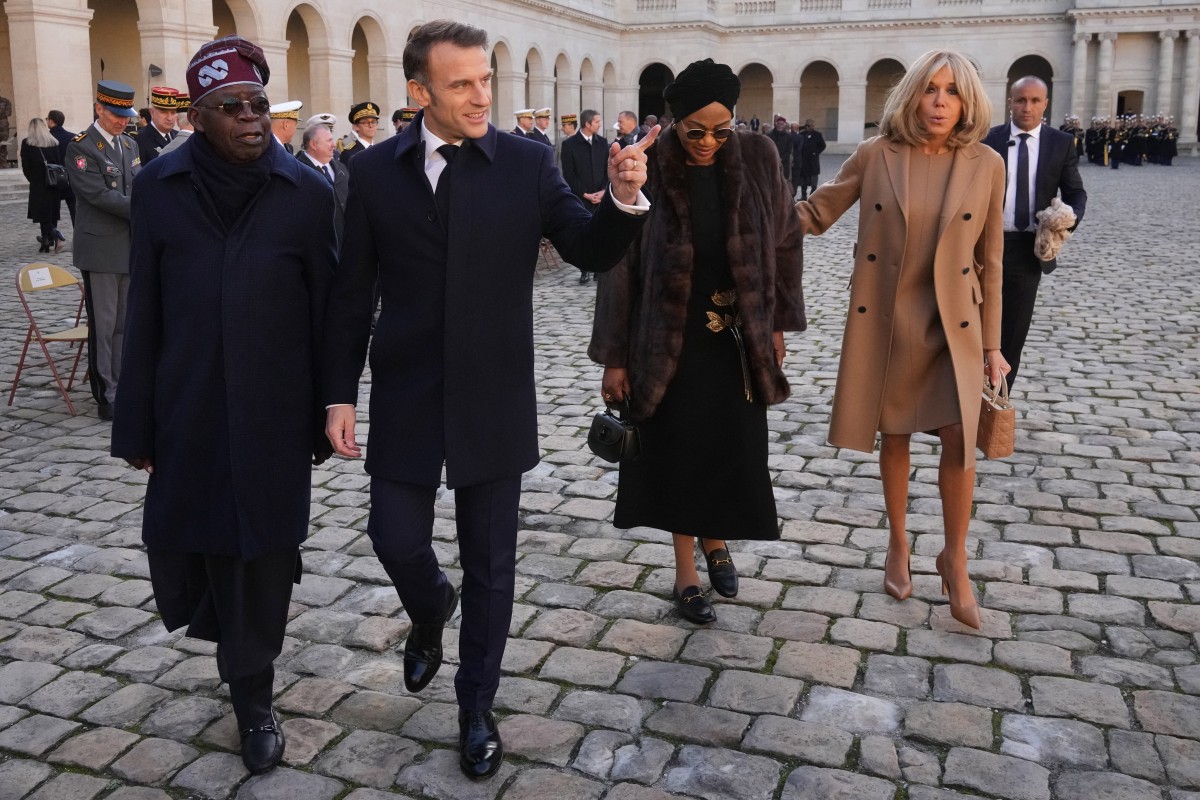President Bola Tinubucommenced a historic three-day state visit to France on Thursday, marking the first official visit by a Nigerian leader in over two decades.
The visit aims to strengthen economic ties between France and Nigeria, reflecting Paris’s renewed focus on Africa’s largest economy amidst shifting geopolitical dynamics on the continent.
French President Emmanuel Macron welcomed Tinubu at the renowned Invalides memorial complex in Paris. The ceremony featured the national anthems of both nations, setting a ceremonial tone for discussions on enhancing bilateral relations.
Macron’s office described the visit as an opportunity to deepen the already vibrant relationship between France and Nigeria, emphasizing the potential for expanded collaboration across various sectors.

As Africa’s largest oil producer and home to the globally influential Nollywood film industry, Nigeria presents significant economic opportunities for France. However, challenges such as insecurity, corruption, and widespread poverty—affecting over 129 million Nigerians—remain significant hurdles to development.
For Nigeria, facing surging inflation and rising food prices, the visit offers a chance to attract foreign investment and boost economic partnerships.
According to Tinubu’s office, key areas of focus include agriculture, security, education, health, youth engagement, innovation, and energy transition. Discussions will also address shared priorities in finance, solid minerals, trade, and investment.
“This trip is pivotal for Nigeria as we seek to collaborate with France in addressing our economic and developmental challenges,” Tinubu’s office said in a statement.
Since his election in 2017, Macron has pursued a “renewal” in France-Africa relations, seeking stronger ties with English-speaking African countries like Nigeria.
The move comes as France’s influence wanes in parts of the continent due to military coups and shifting political dynamics.
Macron and Tinubu are expected to explore partnerships that could enhance Nigeria’s agricultural productivity, strengthen its security architecture, and promote innovation in energy and communication.


